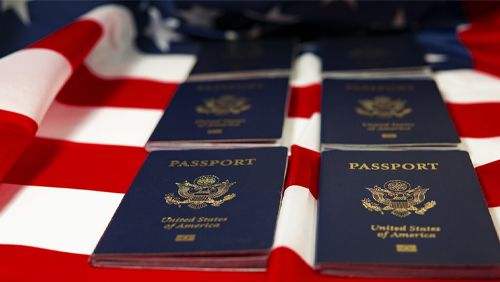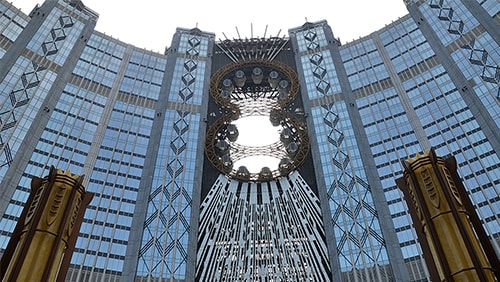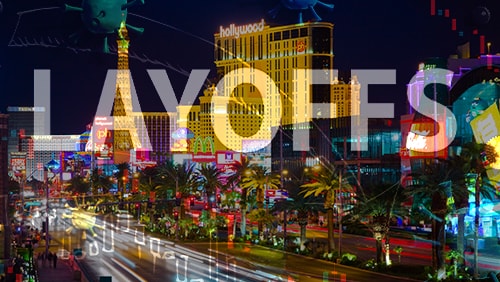An American Pharoah colt did, as expected, triumph July 8 in the Japan Dirt Derby at Ohi Racecourse—but it was not the one already locked in for a bid to the Kentucky Derby Presented by Woodford Reserve (G1).
Monthly Archives: July 2020

Kindred Group’s earnings jump despite sports betting halt
Nordic online gambling operator Kindred Group says it enjoyed a year-on-year earnings spike in Q2 despite the pandemic-related mass suspension of sports events.
On Wednesday, the Stockholm-listed Kindred Group reported that it expects its revenue for the three months ending June 30 to come in around £235m, up from £226.2m in the same period last year. Kindred will release its official interim report for the second quarter on July 24.
Active customer ranks fell 11% year-on-year to 1.3m in Q2 as sports betting opportunities dried up due to COVID-19 forcing major leagues to suspend operations. But Kindred says “solid growth” from its other gambling products, including eSports and virtual sports, along with the gradual resumption of major sports during the latter stages of the quarter, had “partly compensated” for the sports halt.
Kindred’s release made zero mention of its casino and poker performance, likely due the current media/regulatory focus on whether customers deprived of sports betting were transferring their affections to more ‘risky’ gaming products such as online slots.
Keeneland Bans Tom VanMeter From Racing, Sales
The Lexington racetrack and sales company took this action in response to racist social media comments made by Tom VanMeter. Keeneland said it takes advancing inclusion and diversity seriously.
Purses Remain Steady for Derby Week Stakes at Churchill
Though an altered business climate amid COVID-19 has reduced stakes purses across much of the country in 2020, the stakes schedule for Derby week at Churchill Downs Sept. 1-5 is largely intact.

Poker on Screen: PokerStars Big Game (2010-2011)
With the benefit of hindsight, think of the worst time in poker history to create a television show based around the best card game in the world.
If you answered June 2010 to July 2011, then congratulations. Sadly for this week’s Poker on Screen show, the PokerStars Big Game came along exactly between those dates and was virtuakly destined to fail from the very first deal.
When the Big Game came along, High Stakes Poker was already a hugely successful show format. The idea of the biggest names in poker sitting down with six-figure stacks, playing for huge pots was a thrilling one to an already captive audience. Why wouldn’t the biggest poker brand in the world try to capitalize on that by creating a show that was very nearly the same but with one exciting new twist?
The PokerStars Big Game was tied to the ‘Stars NAPT (North American Poker Tour), which in the end damned the whole premise. More on that later, but it was a show that deserved a lot longer than it got on air.

WSOP Gold: The one-liner to Nguyen it all
The World Series of Poker was a very different beast back in 1998. It was a year on from Stu Ungar’s al fresco victory at Binions where the gin rummy king would win his third and final WSOP Main Event title. Just a few months after Scotty Nguyen won the 1998 version, Ungar would be found dead in his motel room, virtually penniless.
There are, therefore, few more poignant moments in history than the summer of 1998, which, as it turned out, would be a red-letter day in the lives of not one poker player but two. The Main Event was an odd one all ends up. When Ungar had taken the title in 1997, he had beaten 311 opponents along the way. Scotty Nguyen topped an even higher field of 350 players in 1998 and for the first time in Main Event history, only five players reached the final table. Those were: Kevin McBride, T.J. Cloutier, Dewey Weum and Lee Salem.
Scotty Nguyen was all the personality at an otherwise very stoic table. Cloutier had won multiple bracelets, but he was a member of the old guard. With Huck Seed winning in 1996 and Ungar taking it down in 1997, it needed Nguyen to be victorious in 1998 to continue the line of maverick winners and the growth of the poker phenomenon. It was crucial to an industry that would use the birth of online poker to build the poker playing population and eventually produce the ‘Moneymaker Effect’ of 2003.
Cue the action. Nguyen dominated the final table, not just with his poker play, but his personality. Going into the final table with the chip lead, Nguyen had 1.18 million chips to McBride (873,000) and Cloutier (829,000) as his closest rivals. Dewey Weum (376,000) and Lee Salem (240,000). Oddly for a final table, everyone finished in the leaderboard order in which they sat down.
Small-town newsstand in Ireland sells its fourth winning lottery ticket
Third time’s the charm is apparently not enough for a small-town newsstand in west Ireland. Irish lottery players might find themselves drawn to the lucky little store in Ballinrobe after it sold its fourth significant winning lottery ticket.Jackpots, Winning Ticket Announcement, Retailer, Lucky, Ireland

Bodog continues to see sports gamblers return to the action
Sports fan are watching intently to see if major leagues like the NBA and MLB can successfully pull off their seasons while facing increased concerns over COVID-19. The two organizations, along with the NHL, are hoping they can get the action going at some point this month, but doubts remain as spikes are seen around the U.S. Fortunately, there is still a lot of other activity available to sports gambling fans, and this past weekend was another successful one for Bodog, which saw substantial interest in a number of sports competitions.
Leading the way among the leagues with the most bets was golf. The Rocket Mortgage Classic was the target for 14.98% of Bodog’s users, followed by a constant favorite, NFL. The NFL 2020 Sims games accounted for 14.62% of the action as the alternative to live football continues to draw a huge crowd. As popular as both of these were, though, they couldn’t beat the collective power of soccer waters. Between the different leagues in the U.K, Spain and Italy, soccer wagers made up 37.35% of the total, and even eSports soccer, with the GT G-26 League, was in the mix with another 9%.
Also in the mix were the Chinese Basketball Association with 6.61%, Horseracing with 6.17% and The Basketball Tournament (TBT) with 6.13%. This tournament, now making its seventh appearance, is a winner-take-all, single-elimination event sponsored by ESPN and open to anyone. The team that can take it all down pockets $1 million. Following on Bodog after TBT, table tennis, with the TT Cup, saw 5.14% of the action.
Breaking down the number of bets placed, the Rocket Mortgage Classic stayed on top and received 33.7% of all the action. That’s probably because of the show put on by Bryson DeChambeau, who would ultimately take the victory of the PGA event by three strokes. He brought every bit of his talent to the greens this past weekend, leading in driving distances and most strokes gained. After he broke the PGA’s ShotLink measurement tool, though, interest in watching him perform picked up even more. ShotLink is a digital tool used to measure the distance of shots, and he averaged 350.6 yards per tee shot with the mechanism in place.

Looking to change citizenship? Dominica might be the answer
There are many reasons why someone may want to change their citizenship from one location to another, but the process isn’t always easy. The reasons aren’t important – everyone’s entitled to choose his or her own path in life. However, for those that want to make a major life change, the Commonwealth of Dominica might be the perfect spot. And, thanks to a new agreement between the government and an upcoming resort, there’s a way to pick up the citizenship with what many would consider a very modest investment.
Halfway between Antigua and Barbuda and St. Vincent and the Grenadines, and the divider between the Windward Islands and the Leeward Islands, lies Dominica. As is the case with many countries, commonwealths and territories, it offers a Citizenship by Investment (CBI) Programme that allows individuals to apply for citizenship by making an investment. As long as the background check goes well and the investment is made, the citizenship is granted.
Tranquility Beach Resort is a new resort coming to the island that is expected to be completed sometime between next year and 2022. It isn’t just another resort being built by some unknown developer; it’s part of the Hilton Curio Collection, which means it has some serious backing to ensure it lives up to its five-star standards. Tranquility just announced today that it has been approved for participation in Dominica’s CBI program, which means that, for an investment as little as $200,000, it could be possible to receive citizenship from the commonwealth.
According to Dominica’s prime minister, Roosevelt Skerrit, the project is one of many that are being developed in the territory and one that he has “been proud to watch from its very inception.” Although many are being constructed, Tranquility is one of only a few that have been given eligibility for participation in the CBI program.

How to build a Bitcoin culture at work
As Bitcoin gains broader adoption, and companies refine the apps and websites that service the digital currency, it’s going to be easier for customers to learn it and use for their every day activities, like gambling. But for the moment, we sit in that awkward space where Bitcoin SV already has several advantages over other payment options, but public awareness and confidence in it isn’t where it needs to be.
So what is a gambling company to do if it wants to start pushing it as a payment option? Listing it on site, providing detailed explainers, and offering deposits bonuses are all very solid steps. But in my experience, if you’re starting from scratch, the first thing you need to do is get a healthy amount of buy-in from your workforce, and that is a task in and of itself.
Luckily, in a past life, advocating Bitcoin adoption was precisely my job. So let me share with you some of the best practices and missteps I saw along the way.
Crafting your training to be as simple as possible

NFL players tell the league to pound sand after escrow proposal
At this rate, the NFL might be called for intentional grounding. The league is close to raising the anger level of players to the point that a season might never happen, and team owners need to realize that they’re starting to slip on the same slope that cost MLB a big part of its reputation. According to rumors that are beginning to circulate in the sports world, NFL wants players to agree to essentially put part of their salary in escrow (although it wouldn’t physically happen that way) in order to counter the impact caused by the coronavirus, and the players union has told the league to pound sand.
The league has suggested that players allow 35% of their 2020 salaries to be put aside to help the league recover costs that have mounted because of COVID-19. However, that 35% wouldn’t be dissected and placed in an escrow account to be released later. Instead, the league is putting lipstick on a pig and doesn’t want to acknowledge that it may not be able to cover all its expenses this year. With the possibility of games being played in front of empty stadiums looming, many teams are concerned they won’t generate the revenue that would have partly gone to cover the players’ pay.
MLB already showed what happens when teams try to mess with players’ salaries, but NFL owners apparently weren’t paying attention. The news hasn’t sat well with the NFL Players Association (NFLPA), which held a conference call with players to break the news. According to NFLPA executive Don Davis, the union’s response to the league was for it to “kick rocks.”
The NFL should have remained quiet and figured out some other way to cover any damages caused by the coronavirus. Players won’t stand for losing any of their salary, especially as owners continue to “fly in their private jets and sit in their private sky boxes,” as one insider put it. Since the conference call was held and the news began rolling out to everyone, several players have already come forward and said that the entire league is ready to sit out if the owners stand their grounds and try to force their “escrow” deal on them.

Poker in Print: From Vietnam to Vegas (2017)
The 2016 WSOP Main Event was one of the best to take place in the last decade. Looking back, the tournament had it all. It had Will Kassouf’s infamous ‘Nine high like a boss’ moment of cringe-inducing comedy, it had the resulting fall-out between Griffin Benger and Kassouf in which neither man covered himself in glory and, of course, it had Cliff ‘Johnny Bax’ Josephy and the moment that will haunt him forever.
It all ended, somewhat predictably given Josephy’s elimination, with aggressive player Qui Nguyen winning the Main Event by beating the more passive Gordon Vayo heads-up.
It’s easy to put it in such plain terms now, but how easy was it exactly for Nguyen to seal the deal? It turns out he wrote a book explaining in detail.
Surprisingly, the WSOP Main Event champion doesn’t always write a book describing what it was like to win the biggest poker tournament on Earth. We’d like to see this rectified in future years when live poker is back – playing inside a giant square bubble can’t have too long a shelf-life – and each winner commissioned ahead of the tournament to work with a talented ghost writer in putting together a tale of the tape.

Frances Tiafoe the Latest to Test Positive for Coronavirus as US Open Looms
With very little recovery time between now and the U.S. Open, American player Frances Tiafoe was the latest player to succumb to COVID-19.
There is a real concern in tennis that major players will be hampered by having caught Coronavirus by the time the U.S. Open kicks off at the end of August. The start of that tournament is just seven weeks away, and while that may seem plenty of time for a young, fit player to recuperate from catching COVID-19 after self-isolating, any changes to as close to a normal build-up as can be experienced in that time are going to take an edge of elite players taking on others at the top level.
The latest case of Frances Tiafoe coming down with Coronavirus prompted the question on Twitter about players and the virus in general.
Curious to take a more formal temperature here…

Michael Caselli talks about our online gambling future
[youtube https://www.youtube.com/watch?v=0fwK1b87h2I?feature=oembed]
The North American gambling industry is trying to thread that needle of staying in operation while keeping customers safe. That’s not easy during the time of COVID-19, and the recent ICE North America Digital took a hard look at how they’re trying to accomplish it. Michael Caselli, Chairman of Clarion Gaming, joined our Becky Liggero after the event to discuss some changes the industry needs to consider, and specifically a push to the online space.
The original design of ICE North America was to be an in-person convention, but that had to change. “Well clearly, ICE North America was not meant to be COVID-focused when we designed it last year, but we were meant to hold it in New Orleans, then we quickly realized that wasn’t going to happen, Caselli said. “And we decided we should do something that had a lot of longevity and didn’t necessarily focus just on COVID, but it turned out to be very COVID related because the COVID related stuff actually has longevity and has consequences that continue on to the future for casinos pretty much from now on forevermore.”
Although casinos have now reopened in many places, they’re continued success isn’t guaranteed at this point. “Casinos are places where you have a lot of people congregating in one small area, so clearly they’re the last things that some states are going to want to open, but they’re also massive economic drivers, huge contributors to the state coffers through the taxes and duties, and beyond that massive employers in the states,” he said. “So states like Nevada are very keen to get their casinos back online, get tourism rolling in and reboot the economy, because you know, you’ve got to balance this whole social health issue with problems in a balanced budget and getting the economy rolling again, because if not you’ll have other social issues.”

Financial issues won’t keep Melco from increasing Studio City share
Studio City in Macau, like virtually all casinos and integrated resorts, has had a difficult time because of COVID-19. The company behind the property, Studio City International Holdings, Ltd., has decided to introduce a couple of private placements to help boost its working capital and is already finding support from one of its current backers. Melco Resorts International already owns close to 60% of the company, but will reportedly grab a piece of the private placements and increase its holdings, despite the casino operator not getting 2020 off to a good start.
Studio City is placing a total of between $450-$500 million in two tranches, both of which will put of Class A shares at $3.89 a piece to existing shareholders who already hold “in aggregate, approximately 99 percent of the issued share capital of the firm,” per a press release issued by the company. Melco is ready to grab as much of that as possible, but another entity that controls 36.3%, New Cotai LLC, can’t be left out in the cold. New Cotai, which is a wholly-owned subsidiary of Studio City International, is given the right to “acquire an additional participation interest in MSC Cotai at a price equivalent to the per Class A share price of the Class A private placements.”
The offering still has to be presented to gauge interest and consummation of any deal will be dependent on market conditions. Those conditions could likely influence interest rates and terms, as well, both of which will be decided on “at the time of pricing of the notes offered.” The money, should everything go according to plan, will be used to help cover “capital expenditures” associated with Studio City.
Melco is looking forward to the offerings and has stated that it will take whatever portion of the shares it’s offered. The company explains that it wants to buy “all the Class A Shares offered to it in the Class A Private Placements,” adding that it also wants “the maximum number of Unsubscribed Securities available for its purchase under the terms of the Private Placements to the extent offered to it by SCIHL.”

Las Vegas Strip to become thinner as permanent layoffs announced
The casino industry had hoped for a quick recovery from the coronavirus pandemic that forced the majority of them to shut down temporarily. With those closures came an endless string of temporary layoffs and furloughs for staff, with no shortage of promises that these suspensions in employment would be brief. It now appears that there will be plenty of casino workers whose suspensions become more permanent, as a number of casinos along the Las Vegas Strip have informed regulators that they are going to have to permanently let employees go.
Per federal law, most businesses that have 100 employees or more have to notify their respective state’s designated body at least two months in advance of any termination of employment. That was ordered through the Worker Adjustment and Retraining Notification Act (WARN) of 1988 and, in Nevada, the Department of Employment, Training and Rehabilitation (DETR), through its Employment Security Division, manages the processing of notifications. Since June, the number of notifications received by the office from the local casino market has increased.
So far, according to DETR, the Sahara, Treasure Island, M Resort and Trump International – a hotel with no casino – have filed what have become known as “WARNings,” the notifications required by WARN, since June. Penn National Gaming and MMG Resorts have also filed WARNings and, in Reno, Harrah’s Reno and Peppermill Resort Hotel Casino are looking at reducing their staffing levels, as well.
This creates a dire situation for Nevada, which has one of the highest unemployment rates in the country. The rate is pegging the needle at maximum because Nevada has relied so heavily on casinos for its economy. However, a loss of employees means a reduction in gaming revenue, an increase in unemployment claims and a larger pool of unemployed workers who can’t find work since the casinos aren’t hiring.
Keeneland in Spotlight for Five-Day Race Meet
Keeneland is about to make headlines in July again, hosting a unique five-day meet July 8-12 that features 10 graded stakes races that would have otherwise been run at the track during its canceled spring meet in April.
Raging Bull, Three Foes to Rematch in Maker's Mark Mile
About 2,000 miles from where they last met at Santa Anita Park in the Shoemaker Mile (G1T), four of that race’s top six finishers meet again in the $300,000 Maker’s Mark Mile (G1T) at Keeneland.
Thoroughbred Makeover Postponed to 2021 Due to COVID-19
After extensive information gathering, research and consideration, the board of the Retired Racehorse Project has made the difficult but unanimous decision to postpone the 2020 Thoroughbred Makeover and National Symposium until 2021.
Baytown Bear Scores as First Winner for Upstart
McEntee Racing’s Baytown Bear ran away with a maiden special weight victory by 9 3/4 lengths July 7 at Indiana Grand, rewarding his sire Upstart with the first winner from the stallion’s freshman crop.